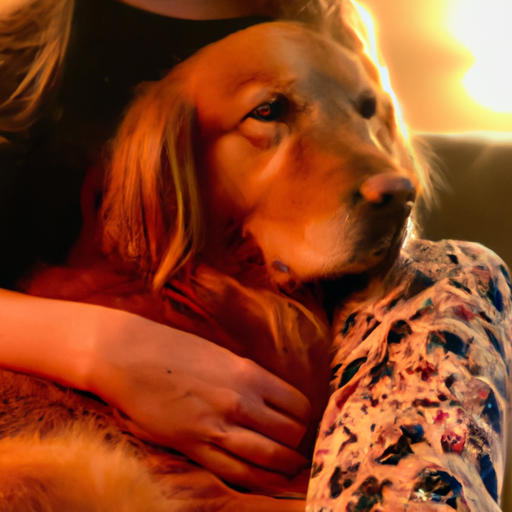If you’ve ever had the pleasure of being close with a dog, you’ve likely experienced the warm, comforting sensation of your furry friend leaning against you. It’s a common behavior in dogs, but what does it truly signify? This comprehensive guide will delve deep into the canine world to shed light on the reasons why dogs lean on you and what they’re trying to communicate.
Table of Contents
- Understanding Dog Behavior
- Why Do Dogs Lean on You?
- Seeking Comfort
- Guarding You
- Asserting Dominance
- What Should You Do When Your Dog Leans on You?
- Frequently Asked Questions
Key Takeaways
- Dogs lean on their human companions for a variety of reasons, most commonly for comfort, protection, or to assert dominance.
- Understanding your dog’s body language is crucial in building a strong, healthy relationship with them.
- Dogs are pack animals and leaning behavior might be a part of their social dynamics.
- It’s important to respond appropriately when your dog leans on you, respecting their communication and boundaries.
Understanding Dog Behavior
Dogs, much like humans, have a complex array of emotions and ways to express them. They don’t have the power of speech like us but they’re highly social creatures and use their body language to communicate. In fact, dog behavior can often be a reflection of their emotional state and their connection with their environment.
As a caregiver, you take on the responsibility of understanding and responding to these non-verbal cues. Websites like OneTopDog offer a wealth of information about dog behavior that can help you decipher what your dog is trying to tell you.
Why Do Dogs Lean on You?
Seeking Comfort
Dogs are pack animals. They crave companionship and comfort from their pack members – in your case, you are their pack. When your dog leans on you, they’re often seeking physical comfort or reassurance. It’s akin to a hug in the human world.
In some cases, this behavior could also indicate anxiety or fear. If your dog leans on you during thunderstorms, while visiting the vet, or in unfamiliar situations, they’re likely seeking comfort from their fear. It’s a plea for you to make them feel safe and secure.
Guarding You
Another possible reason for your dog leaning on you is to protect you. Dogs are incredibly loyal creatures and they often view their human family as their pack that they need to protect. Leaning could be a way for them to mark their territory and show other animals or humans that you’re under their protection.
Asserting Dominance
While less common, some dogs lean on their owners to assert dominance. This is more likely to occur in dogs that show other signs of dominant behavior. If your dog consistently leans on you and exhibits other dominant behaviors, it might be a good idea to consult a dog behaviorist or a professional trainer.
What Should You Do When Your Dog Leans on You?
So, how should you react when your dog leans on you? If your dog is leaning on you for comfort or protection, the best thing you can do is to provide them with the reassurance they’re seeking. Pet them, speak to them in a soothing voice, and make them feel loved and secure.
On the other hand, if your dog is leaning on you to assert dominance, it’s important to address this behavior appropriately. Training techniques such as positive reinforcement can be highly effective in managing dominant behavior in dogs.
Remember, each dog is unique and what works for one might not work for another. The key is to understand your dog’s personality and behavior, and respond accordingly.
Frequently Asked Questions
Why does my dog lean on me when he sleeps?
This could be a sign of trust and affection. Dogs are most vulnerable when they’re asleep, so leaning on you during this time could indicate that they feel safe and secure with you.
Should I let my dog lean on me?
Yes, as long as the behavior is not disruptive or a sign of dominance. If your dog leans on you excessively or shows signs of aggression, it might be a good idea to consult a professional.
Can leaning be a sign of health issues in dogs?
In some cases, excessive leaning could be a sign of health issues, such as joint pain or neurological disorders. If you notice any changes in your dog’s behavior or health, it’s always best to consult a vet.
In conclusion, understanding when and why dogs lean on you is a small but significant step in decoding the rich tapestry of canine behavior. As you navigate this journey with your furry friend, resources like OneTopDog’s guide to dog behavior can be invaluable in helping you strengthen your bond with your four-legged companion.



